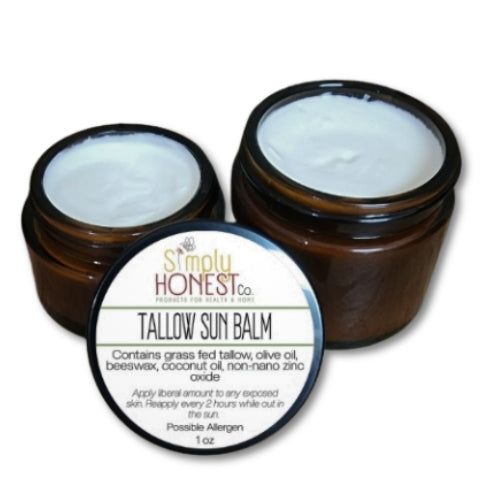The Growing List of Castor Oil Uses and Benefits
Castor oil is considered a vegetable oil that is pale yellow in color and is produced by crushing the seeds of the castor oil plant. Many of the benefits gained by using castor oil are a result of its chemical composition. Castor oil is a particular type of triglyceride fatty acid, with nearly 90 percent of its fatty acid substance is ricinoleic acid, which is an unsaturated omega-9 fatty acid.
Castor oil is a thick, odorless oil made from the seeds of the castor plant. Its use dates back to ancient Egypt, where it was likely used as fuel for lamps as well as for medicinal and beauty purposes. Cleopatra reportedly used it to brighten the whites of her eyes.
Castor oil is able to penetrate deep into the dermis of the skin because 90% of the oil is composed of ricinoleic acid, which can penetrate our tissues and actually enter into our circulatory and lymphatic systems, bringing nourishment and stimulating blood flow.
Castor oil is simple to use and isn't harsh on your skin, making it an excellent remedy for many different ailments.
Castor Oil vs. Jamaican Black Castor Oil
What is the best type of castor oil to use?
Jamaican Black Castor Oil is a type of castor oil made from the castor plant (Ricinus communis), but it is processed differently so it has a blackish color. It is mainly used for hair and beauty treatments.
Alternatively, regular castor oil, also derived from the Ricinus communis plant, has been a staple in many households for generations and is widely available in grocery stores. This classic form of castor oil has been used for a variety of purposes for many years.
It is estimated that between 85-95% of regular castor oil is made up of ricinoleic acid, a monounsaturated fatty acid known for its potential to improve hair growth and reduce hair loss. Castor oil also contains several other advantageous fatty acids including oleic acid, linoleic acid, and stearic acid, which work together to create the oil’s composition and furnish extra benefits to the hair and skin. Moreover, the oil is fortified with minerals and vitamins from castor plant seeds, making it one of the most beneficial oils on the market.
Jamaican Black Castor Oil shares a similar composition with regular castor oil, but its production process and roasting give it a distinct composition. It also is packed with fatty acids, particularly ricinoleic acid, which has been linked to numerous benefits for hair and skin. In addition to oleic acid, linoleic acid, and stearic acid, Jamaican Black Castor Oil contains a number of minerals and vitamins as well.
Production Process
Regular castor oil is produced through a process called cold pressing. The oil is extracted from the seeds of the castor plant by pressing them without roasting or subjecting them to high temperatures. The seeds are typically mechanically pressed to extract the oil. The cold-pressing method of extracting regular castor oil helps retain the natural properties and nutrients of the oil. It is considered a less processed form of castor oil compared to Jamaican Black Castor Oil (JBCO).
Jamaican Black Castor Oil is renowned for its distinctive manufacturing method. Its production process starts with the selection of castor beans. The beans used for this type of castor oil are typically roasted or toasted before extraction. After the castor beans are harvested, they are roasted or toasted to a specific temperature which is what distinguishes Jamaican Black Castor Oil from regular castor oil. The roasting makes the oil darker and enhances its nutty scent.
Once the beans have been toasted, they are crushed into a paste or powder to unlock the oil in them. The ground castor bean paste is then subjected to mechanical pressing to extract the oil which involves applying pressure to the paste to separate the oil from the solid material. The extracted oil is filtered to remove any impurities or remaining solid particles. Sometimes, a clarifying process is also employed to further refine the oil and remove any sediments.
After filtration and clarification, the Jamaican Black Castor Oil is packaged and made ready for distribution and use. It is typically available in bottles or containers.
Scent and Texture
Jamaican Black Castor Oil has a distinct nutty aroma and a thicker consistency compared to Regular Castor Oil, which is typically lighter in scent and texture. Personal preferences and the intended use of the oil may influence your choice between the two.
Cost and Availability
Jamaican Black Castor Oil is often considered a specialty product and may be slightly more expensive than Regular Castor Oil. However, pricing and availability may vary depending on the location and preferred shopping platforms i.e. health stores, beauty supply shops, and online marketplaces.
Benefits and Uses
Regular Castor Oil is famous as a remedy for constipation. Its laxative properties work like magic on constipation which when consumed in a moderate amount, stimulates the muscles in the intestines and promotes bowel movement without putting any pressure.
Regular castor oil is also the best and most natural remedy for pain because of its anti-inflammatory properties. It has been used for pain relief since old times and when applied topically to sore muscles or joints has been proven to reduce inflammation and alleviate discomfort in no time.
Other than that, regular castor oil is also used as a part of beauty regimes like its regular application on eyelashes and eyebrows before bedtime can nourish the hair follicles and stimulates growth, making them appear thicker and longer.
Jamaican Black Castor Oil on the other hand is known for its potential to stimulate hair growth and maintain a healthy scalp. Enriched with omega-9 fatty acids and vitamin E, JBCO comes with abilities that can nourish the hair follicles, strengthen the strands, and reduce hair breakage. Massaging Jamaican Black Castor Oil onto the scalp can also improve blood circulation, promoting healthier hair growth.
The benefits of JBCO extend beyond hair problems. In fact, it can be a great addition to your skincare regimen. The oil’s emollient qualities not only keep the skin hydrated but also is a blessing in disguise especially for those who are battling with dry skin or skin conditions like eczema. Incorporating this oil into your routine can result in a softer, smoother, and more nourished complexion.
Moving on from the benefits for hair and skin, Jamaican Black Castor Oil is also highly beneficial for your nails and cuticles. Just a few drops of JBCO are all you need to nourish your nails and make them less prone to damage. Additionally, it can soften and hydrate cuticles, making them easier to maintain and prettier in appearance.
Effectiveness
Both oils contain ricinoleic acid, the main active component responsible for their effectiveness. Thankfully, the production method and alkalinity differences of both oils do not significantly affect the ricinoleic acid component, making either oil equally effective. Therefore, the effectiveness of these oils varies from person to person, and individual results can depend on various factors such as overall health, genetics, and proper usage.
NOTE: This information is for educational purposes only and is not intended to diagnose, treat, cure or or prevent any disease or condition. Please consult your medical professional prior to use, or if you have any concerns. Statements above have not been evaluated by the FDA.


